|
|
|
|
Nau mai haere mai — welcome to your weekly newsletter.
Tourism minister Stuart Nash made quite a splash recently when he suggested New Zealand should target rich tourists and discourage backpackers and freedom campers. But while there is no doubt our over-stretched and under-resourced tourism industry needs to change, as Otago University’s James Higham and Hazel Tucker explain, there are very good reasons why simply encouraging the super wealthy is not the right answer.
Staying with tourism, the promise of a vaccine and a New Zealand delegation to the Cook Islands have revived hopes of a travel bubble in the near future. As research by Massey University’s Api Movono and Regina Scheyvens shows, however, many tourism workers in the Pacific would like to see real change in the industry, including better wages and conditions and more local control and ownership.
In the meantime, of course, most of us were stuck in one place during the big lockdown in March and April. As this fascinating analysis by Otago University’s Matthew Jenkins and Elaine Hargreaves shows, many of us took the opportunity to do more physical exercise, but not everyone managed to stick with those routines once we regained our freedom. Motivation is a complex thing, it seems, but there is still hope if we learn to form the right
habits in the right way.
There is a lot more here and on our homepage, so please enjoy this week’s reading. As ever, thank you for your continued interest and support. Until next time, ngā mihi maioha ki a koutou katoa.
|
Finlay Macdonald
New Zealand Senior Editor & NZ Editor: Politics, Business + Arts
|

|
|
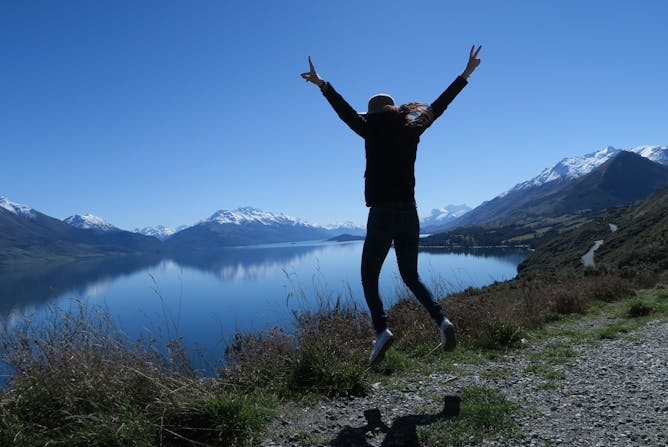
www.shutterstock.com
James Higham, University of Otago; Hazel Tucker, University of Otago
If the tourism minister is worried about the wider social, economic and environmental impacts of visitors, he'd be better off banning cruise ships, not backpackers.
|

Fiona Goodall/Getty Images
Matthew Jenkins, University of Otago; Elaine Hargreaves, University of Otago
People who value the physical and mental health benefits of exercise are more likely to maintain habits they developed during periods of COVID-19 lockdown.
|

www.shutterstock.com
Apisalome Movono, Massey University; Regina Scheyvens, Massey University
Research reveals a desire by Pacific tourism workers for genuine change once travel starts again, including better wages and conditions and greater local control of operations.
|

Shutterstock/ChameleonsEye
Jessica C Lai, Te Herenga Waka — Victoria University of Wellington; Jesse Pirini, Te Herenga Waka — Victoria University of Wellington
Innovation means creating and capturing value from new things. And it's better for the Kiwi economy if investment in that innovation grows local industries and creates jobs.
|
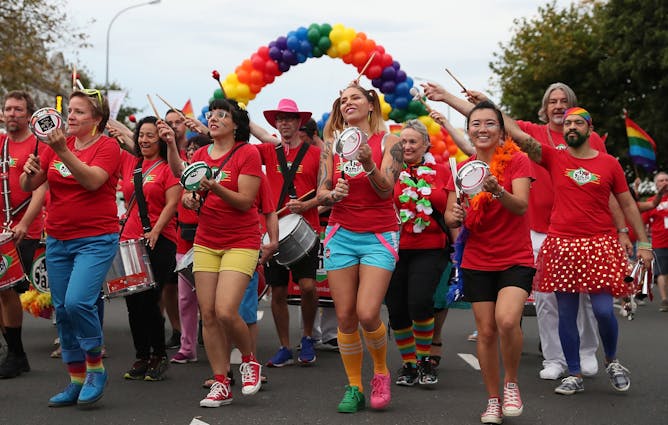
Fiona Goodall/Getty Images
Rona Carroll, University of Otago
Trans and non-binary people often avoid seeing a doctor because they fear discrimination. Health professionals need better training to provide gender-affirming care.
|
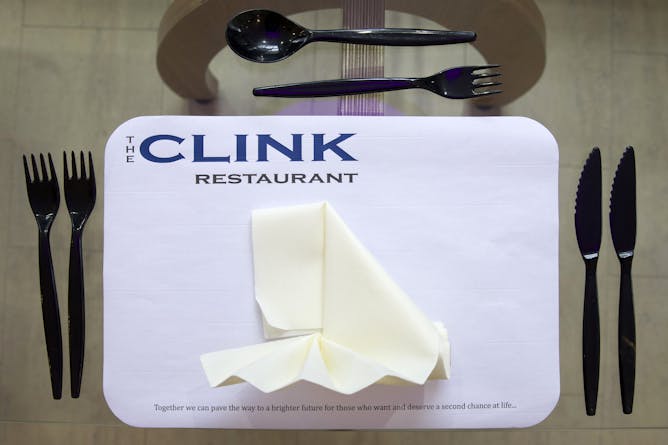
GettyImages
Alison McIntosh, Auckland University of Technology; Maria Gebbels, University of Greenwich; Tracy Harkison, Auckland University of Technology
Training restaurants housed inside prison walls and staffed by inmates are reducing recidivism rates and winning praise from diners overseas. Should we try them in New Zealand?
|
From our international editions
|
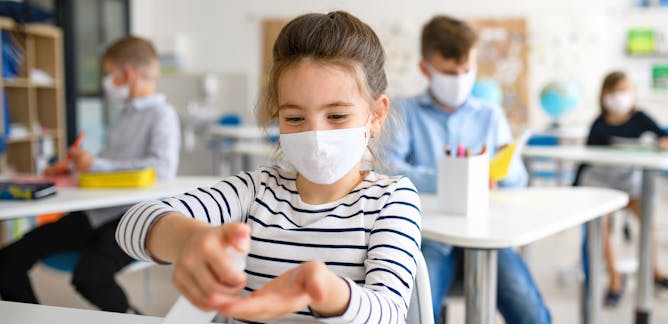
Zoë Hyde, University of Western Australia
The risk associated with schools is tied to the level of community transmission. The more community transmission there is, the more transmission there will be in schools.
| |

Michael Head, University of Southampton
What does this announcement mean for the world? It's potentially huge.
|

Kathryn Williams, University of Melbourne; Christopher McCormack, University of Melbourne; Debbie Gonzalez Canada, University of Melbourne; Kate Lee, University of Melbourne; Maddy Sbeghen, University of Melbourne; Rose Macaulay, University of Melbourne; Stephanie Lavau, University of Melbourne
Some scientists say attributing 'human-like' qualities to animals is misleading. Others say it's a great tool for conservation. Either way, the Netflix hit My Octopus Teacher has a positive message.
| |
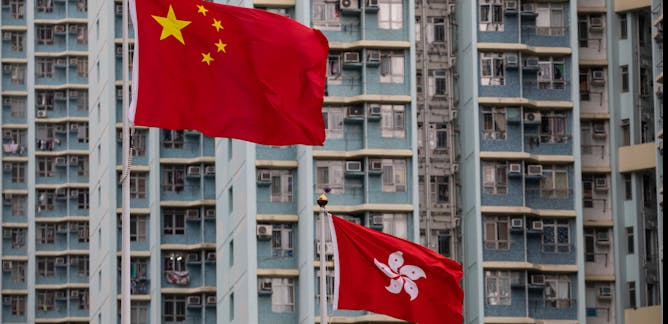
Leïla Choukroune, University of Portsmouth
Chinese interference in Hong Kong's political and legal affairs is creating uncertainty about the future of the territory as an independent business centre.
|
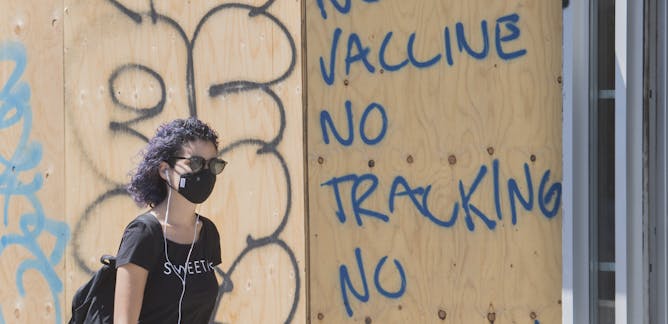
Charles Weijer, Western University
COVID-19 vaccines are at risk of being undermined by vaccine hesitancy. Pharma must take steps to ensure transparency in data monitoring committees and trial data to build public trust in vaccines.
| |

Carla Gardina Pestana, University of California, Los Angeles
An ex-minister named John Lyford arrived at the nascent colony hoping for a fresh start. But he couldn't escape his past.
|
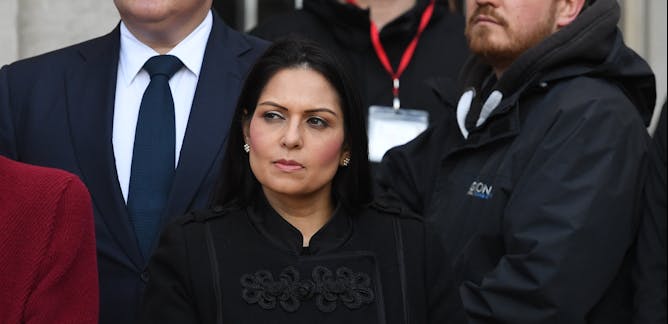
Geoff Beattie, Edge Hill University
Just because someone doesn't have a calculated agenda of bullying another person, they can still, perhaps subconsciously, intend to harm them in isolated and emotional moments.
| |

John Bridges, University of Leicester
Some people are nervous about China's growing capabilities when it comes to space exploration.
|
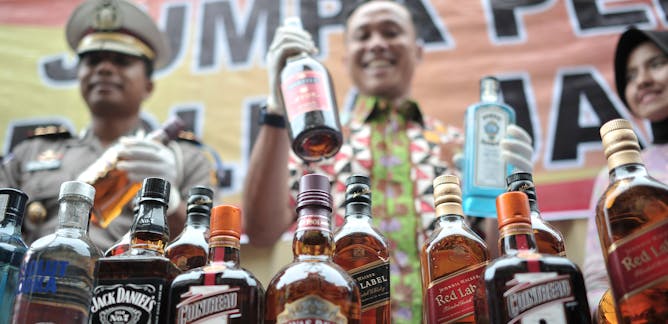
Choky R. Ramadhan, Universitas Indonesia
Considering the limitations of Indonesian law enforcement agencies and prison capacity, the implementation of the bill is not realistic.
| |

Garhe Osiebe, Rhodes University
When pop star D'banj signed up to help get Goodluck Jonathan elected president, fans turned on him. But a hit song turned things around.
|
|
|
| |
| |
| |
| |
| |
| |
|
|
|
|
|
|
|